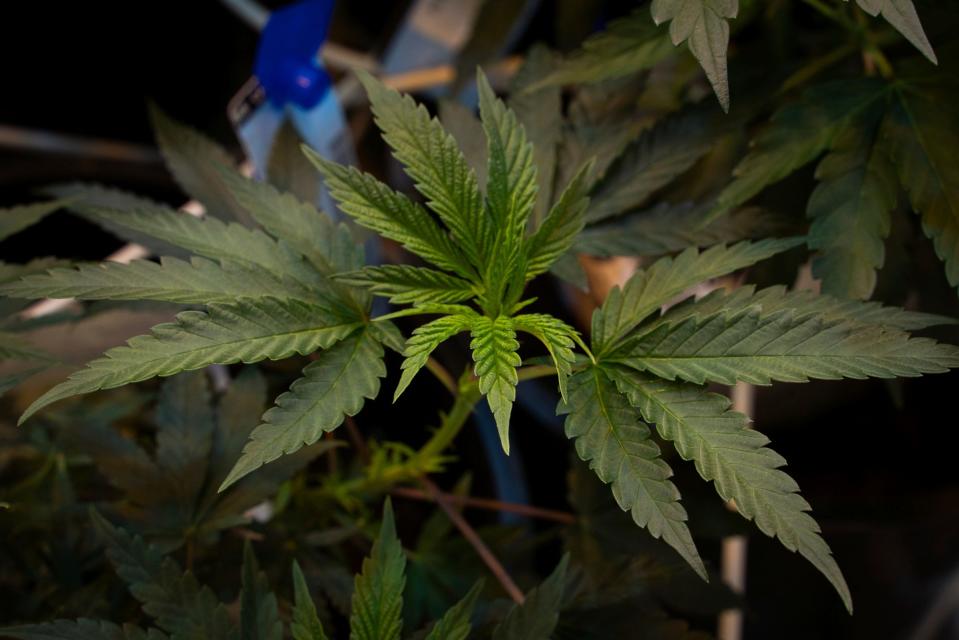
As the State of Michigan and cities around the state, including Detroit, continue to increase access to legal marijuana — and count the receipts for the billions of dollars in marijuana sales — there is mounting evidence that marijuana use by young people in our community is growing.
Detroit Public Schools Community District suspensions for possession of drug paraphernalia or controlled substances ballooned from 289 in the 2019-2021 school years (marijuana became available for legal sale to adults in December of 2019) to 1,735 in the 2021-2023 school years, Deputy Superintendent Alycia Meriweather told me. Even accounting for pandemic-related school closures in 2020 and 2021, it’s an alarming increase.
Data from the Detroit Recovery Project and Detroit Youth Connection indicates that the availability of recreational marijuana has caused a reduced perception of risk by youth. And the new legal market for marijuana in the edible forms like candy, gummies and cookies has also caused an increase in youth admission to emergency rooms for overdoses from marijuana in children as young as 16 months.

To counterbalance the risk created by broader access to legal marijuana, we must build a safety net for our youth — or we will face a marijuana abuse crisis. We need programs to prevent youth substance abuse, and to help kids who need treatment.
As a member of the Detroit City Council, I led the fight to ensure our city’s marijuana licensing ordinance included a requirement that 2% of gross marijuana sales tax receipts go to the Detroit Wayne Integrated Health Network (via the Detroit Health Department) to be spent in the City of Detroit on youth substance abuse prevention.
More from Freep opinion: Poll workers are afraid to work 2024 election. Take Trump, MAGA mob’s threats seriously.
While a great start, 2% of gross sales is only about $100,000 annually. But housing a young person at a quality treatment facility costs approximately $500 per day. It’s not enough.
The Detroit Recovery Project, The Detroit Youth Connection, Wayne County and the City of Detroit are proposing an annual investment of $10 million per year, over the course of five years, to create and maintain a marijuana substance use safety net. These dollars would be collected from a 10% tax on the gross receipts of cannabis sales, and would fund prevention, treatment, recovery programs and comprehensive research.
For this to happen, the Michigan Legislature would need to approve a change to the existing funding formula of marijuana tax receipts.
Laws aren’t enough to keep kids safe
Some argue that because a person must be at least 21 to purchase marijuana, no safety net is needed. That is not always the reality we are experiencing.
When adults do not secure their marijuana, especially edibles, it places children at risk of ingestion. When kids ingest marijuana, it can worsen underlying mental health conditions and lower intelligence. It also increases their risks of mental health disorders and marijuana substance use disorder.
Letters to the Editor: Here’s a UAW strike math lesson for Detroit 3 execs
And the age restriction, thus far, has not stopped an explosion in marijuana use by youth 12 to 17 years of age. It is hard to believe that the legal prohibition against selling marijuana to kids will be more successful than the legal prohibition against selling tobacco to kids.
The City of Detroit recently closed three gas stations in Detroit City Council’s 3rd District for knowingly selling tobacco products to children.

Another great start, but in a 2023 undercover operation led by the Detroit Police Department’s Explorers program, The Youth Connection and the Love Detroit Prevention Coalition, 16 locations in the 3rd District were ticketed for selling tobacco to kids.
We cannot rely on the legal system, or prohibitions against the sale of marijuana, to ensure that our children are not gaining easy access to the drug.
Legislative change is needed
I believe most of our cannabis businesses are operating above board, providing a needed service to many of their patients and customers who use their products to address health-related issues like the after-effects of chemotherapy, chronic pain and anxiety. But as we have seen with gambling and tobacco, a portion of revenue should be set aside to address societal problems caused by these activities. Cannabis is no different.
If we are committed to increasing general access to marijuana, and growing the government’s general funds via the tax receipts of marijuana sales, we must do more to provide the resources necessary to create the safety net for our youth.
We need help from the federal government and the state, starting with the legislative change we are proposing that would enable all municipalities that authorize the sale of marijuana, including Detroit, to dedicate 10% of gross tax receipts to youth substance abuse prevention and treatment.
I know it’s cliché, but our future depends on it.
Councilman Scott Benson serves District 3 on the Detroit City Council. Submit a letter to the editor at freep.com/letters.
This article originally appeared on Detroit Free Press: Legal weed makes Michigan money. Use it to prevent substance abuse


Recent Comments